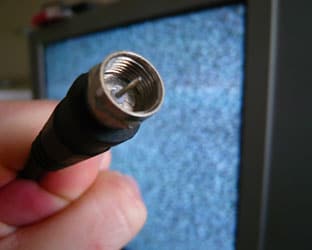The Senate Commerce Committee is going to grill an as-yet-unnamed panel on the progress being made toward 2/17/09, when analog broadcast television is scheduled to become a matter of history. The prospect of millions of analog receivers suddenly going blank still has many people in fret mode. Media Access Project's Andrew Schwartzman addressed the topic at the Minority Media & Telecommunications Council Access to Capital confab, according the National Journal, and he was worried that the people who most need to get the message that analog receivers will soon be going blank are also the least likely to get the message.
His views were echoed by former FCC Commissioner Gloria Tristani. They predict that one problem will be getting first come, first serve set-top digital-to-analog converters to the right people and in sufficient numbers. Officials with NTIA and NAB's David Rehr took exception to that view, however. Rehr said everyone with a stake in this needs to help, but expressed frustration with people who "…tell us all the things we should be doing."
SmartMedia observation: The bottom line is that this is a bread-and-butter issue for broadcasters. We know that the FCC and NTIA have roles to play, and that John Dingell (D-MI) and Ed Markey (D-MA) are likely to find FCC Chairman Kevin Martin considerably more cash than the Commission currently has to spend on the effort. But the real push will likely come from broadcasters themselves. We suspect that every broadcast outlet that wishes to remain solvent on 2/18/09 will be pushing this message just as hard as it can. There are particular worries about Spanish-speakers. Does anybody truly believe that Univision is going to keep this a secret from its audience? The bottom line is that there are sure to be glitches, oversights and other errors associated with the transition. Since the demand for set-top boxes is a matter of educated guesswork, we would recommend that digital receiver sales be closely monitored and that Congress line up a source of additional funding to tap if needed. But we suspect that the transition will be relatively pain free, since the people controlling the medium – broadcasters – are the ones who will be kicked in the wallet if it is not.




